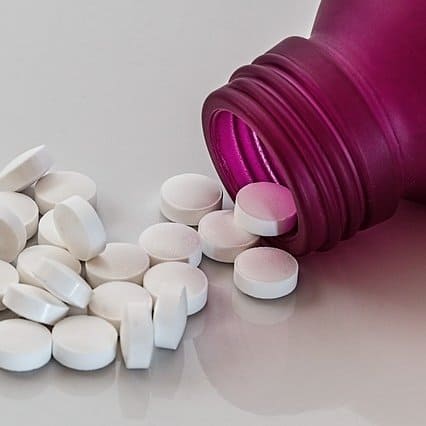Why You Shouldn't Take More Calcium Supplements For Stronger Bones
Chances are you've been hearing about the benefits of calcium for your bones since you were about 10 years old. We all want to be strong and active, especially as we get older so I'll bet most women have a bottle of calcium supplements in their medicine cabinet. However, as we age, and definitely after menopause, taking lots of calcium from supplements isn't always better. In fact, it may actually be harmful to some of us.
Osteoporosis is one of those "old lady" problems that young women and girls don't usually give much thought to. I know I never did. I was never a milk drinker when I was young and I sure didn't give much thought to my bones. Now that I'm closer to being an old lady than not, I AM worried about my bones! Now, I add an ample amount of milk to my oats and coffee each day, I try to incorporate milk into recipes whenever possible to get that extra calcium, and I take a supplement.
Bones are in constant motion. Every day, they're breaking down and remodeling or rebuilding, but after menopause, bone tissue breaks down much faster than it's remodeled, and that leads to very thin, porous bones, also known as osteoporosis. Boosting your calcium intake helps to slow down that bone loss, but many calcium-rich foods add extra unwanted calories, or we may not like them, and that's why it's so much easier to pop a calcium supplement.

Calcium supplements can be a great way to get that extra needed calcium, but here's what you need to know about them:
- Your body will only absorb small amounts of calcium at a time, so only take about 300-400 mg with or after your meals. More is not better.
- Speaking of meals, calcium carbonate should be taken with a meal, but calcium citrate can be taken anytime, even on an empty stomach.
- Calcium alone won't do you much good. It needs vitamin D to get into your bones, so take them together, or take a supplement that contains both.
- Too much calcium can be harmful! Studies have shown that excess calcium from supplements (but not from food), can build up and harden, or calcify in your arteries, which puts you at risk for a heart attack. Don't take more than 1,500 mg of calcium from a supplement each day, especially if you're at risk for cardiovascular disease, unless your doctor has told you to do so.
- Vitamin K2 also helps calcium to get into your bones and keeps it out of your arteries. Unlike the form of vitamin K found in leafy greens like kale and spinach, K2 is found in full-fat grass-fed dairy foods, egg yolks, and natto (Japanese fermented soybeans). Studies on postmenopausal women suggest that taking vitamin K2 supplements can help to maintain bone density and reduce bone loss.
[bctt tweet="Try to get your #Calcium from #FoodsFirst. Too much from a supplement can be harmful. #HeartHealth #StrongWomen #osteoporosis" username="CraveSomeHealth"]
So... what's the bottom line for your best bone health? First, eat a well-balanced diet that includes lots of calcium-rich foods like leafy greens, legumes, dried apricots and figs, almonds, and dairy or fortified non-dairy foods. Next, check with your registered dietitian (or shoot me an email) to see if you need a calcium/D supplement. If you're postmenopausal, you probably do. Finally, if you're at risk for osteoporosis, take a vitamin K2 supplement (about 100-150 micrograms is probably enough).
Please be aware that vitamin K will interact with blood thinners like coumadin, so don't take the supplement without first checking with your doctor!
For more info about how to keep your bones strong and which foods to eat and which to steer clear of, check out my post on Bone Suckers and Bone Builders.
Do you take a calcium supplement, or do you try to get your calcium from food first?
Eat well!

